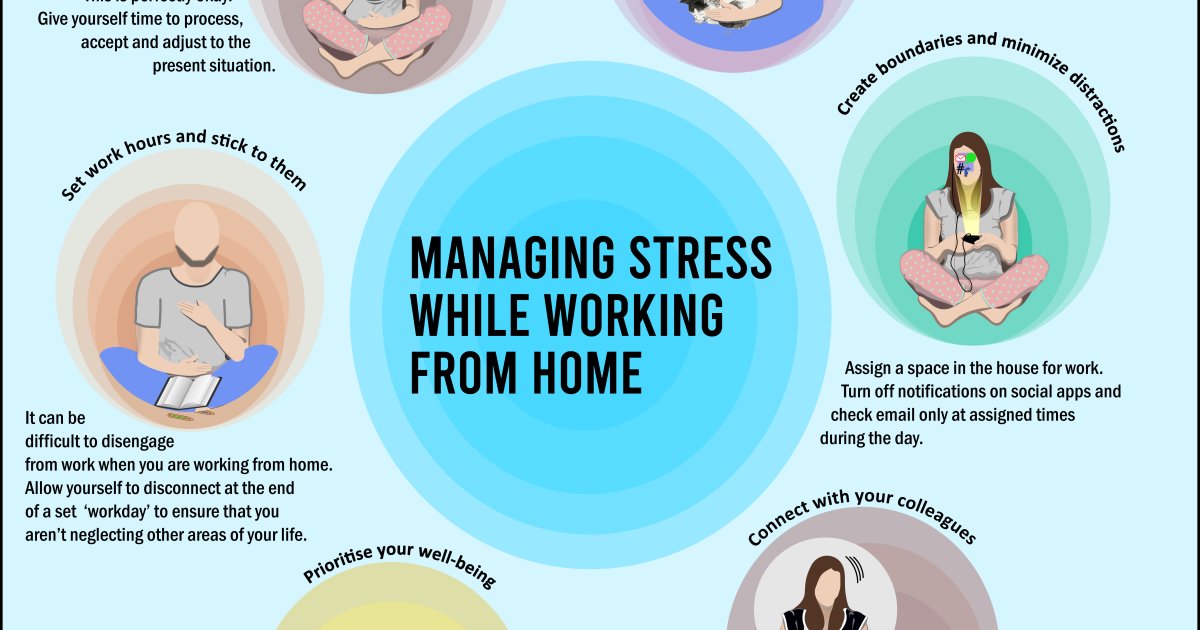Understanding the Importance of Managing Stress While Working
In today’s fast-paced and competitive work environment, stress is often unavoidable. However, it is essential to recognize the detrimental effects that chronic stress can have on both our physical and mental well-being. Chronic stress has been linked to a myriad of health issues, including high blood pressure, heart disease, and depression. By actively managing stress while working, we can significantly improve our overall quality of life and productivity.
One of the first steps in managing stress while working is to identify the sources of stress in our lives. This can include work-related pressures, personal issues, or even environmental factors. By pinpointing these stressors, we can then work towards finding effective strategies to cope with them. This may involve setting boundaries at work, practicing mindfulness techniques, or seeking professional help if needed.

It is also important to establish a healthy work-life balance in order to effectively manage stress. This means setting aside time for self-care activities, such as exercise, hobbies, and spending time with loved ones. By prioritizing our well-being outside of work, we can reduce the negative impact that stress has on our overall health and happiness.
Practical Tips for Managing Stress While Working
One of the most effective ways to manage stress while working is to practice mindfulness techniques. This involves being present in the moment and focusing on our thoughts and feelings without judgment. By incorporating mindfulness into our daily routine, we can better cope with stress and improve our overall sense of well-being.

Another helpful tip for managing stress while working is to prioritize tasks and set realistic goals. This can help prevent feelings of overwhelm and anxiety that often accompany a heavy workload. By breaking tasks down into manageable chunks and focusing on one thing at a time, we can reduce stress and increase productivity.
In addition, incorporating regular physical activity into our routine can also help to alleviate stress. Exercise has been shown to release endorphins, which are chemicals in the brain that act as natural painkillers and mood elevators. Whether it’s going for a walk, hitting the gym, or practicing yoga, finding a form of exercise that you enjoy can significantly reduce stress levels.
The Role of Nutrition in Managing Stress While Working

Nutrition plays a crucial role in managing stress while working. Eating a well-balanced diet that is rich in fruits, vegetables, whole grains, and lean proteins can help to support our overall health and reduce stress levels. Certain foods, such as those high in sugar and caffeine, can actually exacerbate stress and anxiety, so it’s important to be mindful of what we are putting into our bodies.
In addition to eating a healthy diet, staying hydrated is also essential for managing stress. Dehydration can lead to fatigue, irritability, and difficulty concentrating, all of which can contribute to increased stress levels. By drinking an adequate amount of water throughout the day, we can ensure that our bodies are functioning optimally and better equipped to handle stress.

Lastly, incorporating stress-reducing foods into our diet can also help to combat the negative effects of stress. Foods such as salmon, avocados, and nuts are rich in omega-3 fatty acids, which have been shown to reduce inflammation and promote brain health. By making small adjustments to our diet, we can support our bodies in managing stress more effectively.
Creating a Supportive Work Environment for Managing Stress
Creating a supportive work environment is crucial for effectively managing stress while working. This means fostering open communication, promoting work-life balance, and providing resources for employees to cope with stress. By encouraging a culture of wellness and prioritizing the mental health of employees, organizations can help to reduce stress levels and improve overall productivity.

One way to create a supportive work environment is to offer wellness programs and resources for employees. This can include mental health resources, mindfulness workshops, and access to fitness facilities. By providing employees with the tools they need to manage stress, organizations can demonstrate their commitment to employee well-being and create a positive work culture.
In addition, fostering a sense of community and teamwork within the workplace can also help to reduce stress levels. By encouraging collaboration, communication, and mutual support among employees, organizations can create a sense of belonging and connectedness that can help to alleviate stress. Building strong relationships with colleagues can provide a sense of camaraderie and support during challenging times.
Setting Boundaries for Managing Stress While Working
Setting boundaries is essential for managing stress while working. This means establishing clear guidelines for when and how work-related tasks are to be completed, as well as setting limits on how much time and energy we are willing to dedicate to work. By creating boundaries, we can prevent burnout, reduce stress levels, and maintain a healthy work-life balance.
One way to set boundaries is to establish a designated workspace where work-related tasks are completed. By creating a physical separation between work and personal life, we can better focus on work during designated hours and then disconnect and recharge when the workday is over. This can help to prevent work-related stress from spilling over into our personal lives.
In addition to setting physical boundaries, it is also important to set emotional boundaries while working. This means being assertive in communicating our needs and limits to colleagues and supervisors. By clearly articulating our boundaries and expectations, we can prevent feelings of resentment, frustration, and overwhelm that often accompany blurred boundaries in the workplace.
Practicing Self-Care for Managing Stress While Working
Practicing self-care is essential for managing stress while working. This means prioritizing our physical, mental, and emotional well-being by engaging in activities that promote relaxation, rejuvenation, and self-reflection. By incorporating self-care into our daily routine, we can better cope with stress and prevent burnout.
One way to practice self-care is to engage in activities that bring us joy and relaxation. This can include reading a book, taking a bath, going for a walk in nature, or practicing meditation. By making time for activities that nourish our soul and rejuvenate our spirit, we can reduce stress levels and improve our overall sense of well-being.
Another important aspect of self-care is prioritizing sleep and rest. Adequate sleep is essential for cognitive function, emotional regulation, and overall health. By establishing a consistent sleep routine and creating a restful environment, we can ensure that our bodies are well-rested and better equipped to handle stress.
Lastly, seeking support from loved ones, friends, or a mental health professional can also be a crucial aspect of self-care. By sharing our feelings, concerns, and struggles with others, we can gain perspective, receive validation, and find comfort in knowing that we are not alone in our struggles. Building a support network can provide us with the emotional support and guidance we need to navigate stressful situations with resilience and grace.
The Benefits of Mindfulness for Managing Stress While Working
Mindfulness is a powerful tool for managing stress while working. This practice involves being present in the moment, observing our thoughts and feelings without judgment, and cultivating a sense of calm and awareness. By incorporating mindfulness into our daily routine, we can better cope with stress, improve our emotional regulation, and enhance our overall well-being.
One of the key benefits of mindfulness is its ability to reduce rumination and negative thinking patterns that often contribute to stress. By practicing mindfulness, we can learn to observe our thoughts without becoming attached to them, allowing us to let go of unhelpful patterns of thinking and cultivate a sense of inner peace and clarity.
In addition, mindfulness has been shown to reduce stress levels by activating the body’s relaxation response. By focusing on our breath, body sensations, or external stimuli, we can shift our nervous system from a state of fight-or-flight to a state of rest-and-digest. This can help to reduce the physiological symptoms of stress, such as increased heart rate, muscle tension, and shallow breathing.
Furthermore, mindfulness can also improve our emotional regulation by increasing our awareness of our emotions and responses to stress. By practicing mindfulness, we can develop greater self-awareness, empathy, and compassion towards ourselves and others. This can help us to respond to stressful situations with greater resilience, patience, and kindness, ultimately improving our relationships and overall well-being.
Seeking Professional Help for Managing Stress While Working
In some cases, managing stress while working may require seeking professional help. This can include working with a therapist, counselor, or mental health professional who can provide guidance, support, and resources for coping with stress. By seeking professional help, we can gain a deeper understanding of our stressors, develop effective coping strategies, and work towards improving our overall mental health.
Therapy can be a valuable tool for managing stress while working, as it provides a safe and supportive space to explore our thoughts, feelings, and behaviors. A therapist can help us identify underlying issues contributing to our stress, develop healthier coping mechanisms, and learn effective strategies for managing stress in the workplace.
In addition to therapy, medication may also be prescribed to help manage symptoms of stress, anxiety, or depression. By working with a psychiatrist or healthcare provider, we can explore medication options that may help to alleviate the physiological symptoms of stress and improve our overall mental health.
Furthermore, seeking professional help can also involve participating in stress management programs, workshops, or support groups. These resources can provide us with valuable tools, techniques, and strategies for coping with stress, as well as connect us with a community of individuals who are experiencing similar challenges. By seeking professional help, we can take proactive steps towards managing stress and improving our overall well-being.
Conclusion
In conclusion, managing stress while working is essential for maintaining our physical and mental well-being, as well as improving our overall productivity and quality of life. By understanding the importance of stress management, practicing practical tips, incorporating self-care, and seeking professional help when needed, we can effectively cope with stress and prevent burnout in the workplace. It is crucial to prioritize our well-being, set boundaries, create